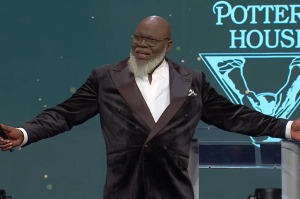Theistic Evolutionist Francis Collins Eyed to Lead NIH
Physician-geneticist Francis S. Collins, who successfully led efforts to map the human genetic code, is the top choice for the National Institutes of Health (NIH)'s next director, according to a source familiar with the selection process.
Screening for Collins is nearly complete and President Obama may announce his nomination as early as this week, the source reportedly told Bloomberg News, which broke the story.
Should he be tapped for the spot, Collins would be faced with calls to boost spending on cancer research and free science from politics as well as financial conflicts of interest.
As an agency of the U.S. Department of Health and Human Services, the NIH serves as the steward of medical and behavioral research for the country, providing leadership and direction to programs designed to improve the health of the nation by conducting and supporting research.
Currently, Raynard S. Kington is serving as the NIH acting director after Elias A. Zerhouni, former President Bush's pick in 2002, stepped down at the end of October 2008.
Though neither Collins nor the White House have commented on the leak, those familiar with Collins' work have hailed his candidacy.
Aside from his landmark discoveries of disease genes and his leadership of the Human Genome Project, Collins is known for his consistent emphasis on the importance of ethical and legal issues in genetics. He has been elected to the Institute of Medicine and the National Academy of Sciences, and was awarded the Presidential Medal of Freedom – the highest civilian honor given by the President – in November 2007.
Collins is also founder of the BiosLogos Foundation, which addresses the escalating culture war between science and faith in the United States.
As a Christian, Collins is a theist evolutionist – someone who believes classical religious teachings about God are compatible with the modern scientific understanding about biological evolution.
His 2006 book, The Language of God: A Scientist Presents Evidence for Belief, spent 20 weeks on the New York Times bestsellers list and explained how he found harmony between the scientific and spiritual worldviews.
In the book, Collins also defended research on existing embryonic stem cells, though he has expressed opposition to purposely creating them for research.
Collins was present during the signing of an Executive Order by President Obama that reversed the government's ban on funding stem-cell research back in March.





























